Newsletter Issue #540: 06 Jun 2021
Planets! At The Disco!
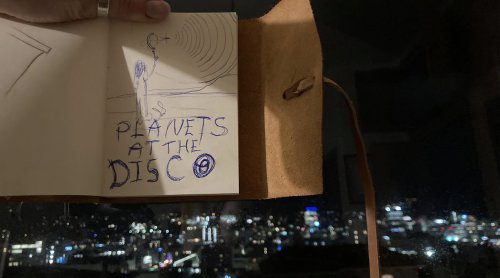
Drawing by Ross Hulley
Ah, the humble radio.
Find one in your kitchen, your car, perhaps a waterproof one in your shower. Your alarm-clock, your news-provider, your Friday-night go-to and most importantly your largest free provider of New Zealand music.
And to think that every single thing broadcast on radio here on earth travels perpetually through space, forever. This means, hypothetically, if you somehow get far enough away from earth, with a radio that somehow still works, you could tune in to the very first radio broadcast made by humans.
And if you were really good at maths, you could work out the exact location in space time that you’d have to be to catch the inter-planetary repeat of my flatmate Harry’s DJ set on Radioactive last Friday (he gave me a shoutout so I owed him one). Pretty neat.
Who knows what space-dwelling creatures are out there grooving to the exotic music from New Zealand, planet Earth. They might be broadcasting right back at us and it hasn’t quite reached our solar-system yet.
This month we have an epic issue, focused on our humble independent radio stations. We have interviews with James Meharry of RDU in Otautahi, Harri Robinson of Radioactive in Te-Whanganui-a-Tara and a bunch of amazing people from Beagle Radio up in Whangarei. They contain so much amazing info that I couldn’t edit them down to fit in the newsletter so make sure to check out the full interviews via the links!
xXx
- Beth Mountford
MNZ: Capital BS 002: James Meharry from RDU FM

Capital BS caught up with James Meharry from RDU about rave-culture, the 90's and music that needs to be heard...
What role do you think that local radio has in supporting NZ music?
Without pointing to the future because that’s kinda hard I think it certainly I can speak very confidently that our student radio is very special and unique. Even in a global sense, you can compare it to maybe what’s considered college radio overseas. No-one has the same kaupapa.
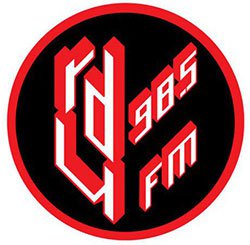 We have had what’s called “self-imposed mandates” to NZ music. Back in the late 80s, we had a self-imposed minimum playlist of NZ music on our stations, and this is a long time before NZ put any organisation that
would have a reason to support NZ music, before our government decided that we need to support local and indigenous voices – long before that, student radio had decided that NZ music needed to be supported and it needed a place. When
it comes to legacy everyone will recognise without a doubt that student radio played a significant role in supporting and platforming local and indigenous music.
We have had what’s called “self-imposed mandates” to NZ music. Back in the late 80s, we had a self-imposed minimum playlist of NZ music on our stations, and this is a long time before NZ put any organisation that
would have a reason to support NZ music, before our government decided that we need to support local and indigenous voices – long before that, student radio had decided that NZ music needed to be supported and it needed a place. When
it comes to legacy everyone will recognise without a doubt that student radio played a significant role in supporting and platforming local and indigenous music.
There's many other ways that local music gets heard and gets shared and achieves an audience. Before you move forward you have to look back and say, well how good were we? And how did we do? what we do? And that’s something that student radio holds its head really high about. It has a certain mana about supporting NZ music. It was a home for many, many people when there was no home for them anywhere else.
Thinking about my experience in 1990, there was not a lot, there was a very commercial environment around, there was just no place for NZ music at all. Even some of the most famous people, who you’d call the alumni of NZ music, Split Enz, Dave Dobbyn, all of the Flying Nun catalogue they all first had their radio play on student radio.
Would you say that you play more music from Christchurch than the rest of NZ?
Almost certainly. If I could give you an actual number then I think last year we playlisted around 215 pieces of Otautahi music. If you ask any other radio station how much Christchurch music they put on their playlists I don’t think they’d get in the hundreds. So, without a doubt, there is no competitor close to even call it a competition when it comes to supporting our local music.
The inherent nature of student radio is that we are decentralised, we are a network, but we are all completely regional. By a corporate commercial model you would say that that’s a flaw because you can’t get the cohesion across the group that might seem to be advantageous. However, it’s very important in a modern world to maintain our regionalism. And in that nature, we are exceedingly skilled and that speaks to the kaupapa of our network as a whole, of our individual stations. Our regions are extremely skilled at representing our local sound – the sound of the community. That’s something we all uphold today and that’s something that again, is reflective of the character of student radio stations.
And specifically because we do that, that makes us unique in a way like nowhere else in the world. That mandate – self-imposed back in the 80s, has come to define who we are. We made this commitment to representing local music – that's not a mandate in many other student networks around the world. And it’s not just about New Zealand music. It’s about great music. About good music. Music that needs to be heard.
MNZ: Capital BS 003: Harri Robinson from Radioactive FM

Over a sweet soy flat white in downtown Wellington, Beth had a chat with Harri Robinson about art projects gone right, bankruptcy and vibrant creative scenes...
So, we’ve been around since the 70s, we started as the student station for Massey. We actually started as an art project by a bunch of students who wanted to follow on from the kind of pirate radio and we just happened to keep going.
 I started in 2015/2016 around about. I actually got involved because I was working on a project with a friend, called For the Maui. We did an interview on one of the breakfast shows and they mentioned that they were looking for more female hosts so I went in! Firstly covering shows as a cover host and then a started on the Monday drive which I did for about two years and top 11 which I did for a couple of years and then I started shadowing the old programmer Miles, pretty iconic dude. He really championed my cause at active. It ended up being serendipitous timing because they were restructuring after the bankruptcy...
I started in 2015/2016 around about. I actually got involved because I was working on a project with a friend, called For the Maui. We did an interview on one of the breakfast shows and they mentioned that they were looking for more female hosts so I went in! Firstly covering shows as a cover host and then a started on the Monday drive which I did for about two years and top 11 which I did for a couple of years and then I started shadowing the old programmer Miles, pretty iconic dude. He really championed my cause at active. It ended up being serendipitous timing because they were restructuring after the bankruptcy...
That’s just one of the things that just happened back in the day. It’s a pretty well documented thing, the Reactivate campaign. We got a bunch of crowdfunding and it was really cool that lots of people were keen to keep us alive.
So long story short I got into my current role late 2018 so since then I’ve been program directing which is basically just like, on-air content. I do the on-air stuff, the social media, putting songs on playlists and DJs on stations.
What role does local radio play in supporting New Zealand music?
Oh my God such a big role! It’s one of those things that I think both are needed to sustain each other and both are needed to sustain New Zealand culture in general. Something I really love about New Zealand’s creative culture in general is how collaborative the whole thing is. It’s very much like if you’re a musician you probably also know a bunch of filmmakers. The creative scenes are all so small and so bursting with talent at the same time. I think having a media outlet whose sole job is to promote and give spaces to those sorts of people is so important. Especially because it can be really hard to break through in the bigger national market or even the international market without the back up of other people. In the internet age you know you need five friends who also have a million friends who say you’re any good before anyone will trust it.
So I think it’s really important having an organisation like the SRN (Student Radio Network) that is there to foster a community and create space and just do what it can to give people who might not get the spaces because they aren’t there in front of the three people who are the tastemakers of the major label industry. To give those people a shot because there’s just so much talent.
And you’d say that creative network spans across the country?
I think it depends on where you are in the scene. I do think Auckland is quite a dominant force in the scene because that’s where a lot of our major labels are and just a bigger population and more venues. Our whole kaupapa with the student radio network is to make it more of a collaboration. The collaborative thing, though it hasn’t been happening for long it’s been really awesome and it’s really helped us showcase the whole country. Like, I've seen way more bands, especially from Christchurch and Dunedin who are like amazingly talented. There's a lot more of these groups that are getting a lot more traction because they’ve had the ability to showcase themselves a lot more.
In terms of NZ music, would you say that Radioactive plays more music from Wellington than anywhere else in the country?
100% That’s the point right? Generally we’re on about 70% New Zealand music so it’s a pretty NZ heavy rotation and within that a large amount of those tracks are local artists, and definitely live wise. It’s a fine line between catering for your city and programming the best that’s in New Zealand right now and we are so fortunate that we have so many of the most amazing especially like Dr.Reknaw and H4LF CAST, I don’t want to genre them but that sort of sound. We’re killing it.
MNZ: Capital BS 004: Beagle Radio

Capital BS caught up with the crew from Beagle Radio about niche radio genres, passionate music and that one band...
With input from:
Kim Townsend, Jamie Haigh, David Fleig, Eursula Hicks, and Damian Pullen.
Tell us a bit about Beagle and how it came about?
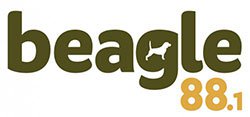 Beagle
Radio was started by a group of friends sitting in a bar, who wanted to do something for the community, and the shared interest was a passion for music. Luckily, there were people in the group who had the technical and organisational skills to
make it happen. It also required many more meetings in bars to get it going, and keep it going. As it says on the website, Beagle is “Whangarei's only 1 watt low power FM community radio station named after a dog,” so we’re pretty niche. Being low
power means the FM broadcast is limited, but you can listen online at beagleradio.co.nz
Beagle
Radio was started by a group of friends sitting in a bar, who wanted to do something for the community, and the shared interest was a passion for music. Luckily, there were people in the group who had the technical and organisational skills to
make it happen. It also required many more meetings in bars to get it going, and keep it going. As it says on the website, Beagle is “Whangarei's only 1 watt low power FM community radio station named after a dog,” so we’re pretty niche. Being low
power means the FM broadcast is limited, but you can listen online at beagleradio.co.nz
What role do you think local radio plays in supporting NZ music?
It’s important, especially for less well-known performers, as commercial stations are more inclined to play bigger kiwi acts, so we try to play less mainstream NZ and local artists. We encourage DJ’s to play NZ music during NZ music month, and throughout the year. There’s a big list of NZ bands on the wall in the studio as a reminder!
What do you think are the advantages of being an independent radio station?
Being independent! It gives us the freedom to be completely community based, and to be different. For example, playing The Eagles is banned on Beagle Radio, which is one of our few rules. With less rules, there’s freedom for DJ's to come in and play whatever they feel like, just not The Eagles. Some people still play The Eagles, and we don’t ask them to leave. We just work with them on that. Independence gives us the ability to engage with individuals and community groups, and there’s a sense of 'everyone having a go' – we have DJ’s from all walks of life. And people listen all over the world – there’s a great website called Radio Garden (http://radio.garden) which we belong to, which helps a global audience find us...
MNZ: The Space Between Us 001: Serpent Dream

In the first of a series of interviews with musicians who primarily colour their musical worlds wordlessly, Mike Alexander from Muzic.net.nz caught up with sonic explorer James Costin, who most notably works under the alias Serpent Dream.

What one piece of music, more than any other, defined your youth?
If I had to pick one it would be Heritage by Opeth. I remember listening to that record again and again. It was my turning point into all kinds of new music outside of the metal that I was listening to. It was one of the albums that made me want to learn guitar and to write music of my own.
Was a career in music always on the cards or did you have a plan B?
I have loved listening to music most of my life, so I started learning how to play guitar. Early on, there was a pretty big disparity between my skill level and what I heard in my head. Learning music production was my plan B; although to be involved in music in any way would have been satisfying. Being a producer and mixing engineer in this day and age has its own set of challenges. And being an artist mostly focused on recorded music is hard as well. It is scary to think about having an income solely from my art and craft. It feels like there is too much potential for money to influence what music I make and what projects I take on, so I have a day job. I'm fortunate to have found a nice balance between being in my studio and planting trees. I am living my plan B, to be honest. I am open to whatever opportunities come to me, but I have no illusions about how difficult it is to be fully professional in the music industry today.
You have a degree in audio production. What was the fascination there?
I picked up the acoustic guitar when I was 21, but I always wanted to do more as I was lacking in skill to match my vision. Audio production made a lot of sense as I am a big fan of recorded music. As I learned the tools, I found more and more that I was producing my own music for assessments. I found it so fascinating that I could capture these ideas and manipulate the sounds into something tangible and expressive of my inner world. As I learned more about the audio process this pushed me to develop my musical ideas further and has taken me to where I am now.
Is there any particular reason you chose the alias Serpent Dream?
I remember coming up with the name during my studies for a project. I wanted to make mysterious and strange music. Having Serpent Dream as my title for the project lends to this ethereal yet earthy sounding soundscape I want to create. I always liked the idea of the serpent being a symbol of power, health and protection in various cultures around the world. Specifically, the devil and evil are represented by the serpent in one place and as a creator god and force of good in others. I find this dichotomy a great analogy to my music.
January 13, 2016, is a special date. It was the day you released your very first recording – Awaken? Do you recall if you were nervous, excited or relieved?
I spent a lot of time on that record. Awaken was part of a full EP for my diploma. It was the only single I released of the project, as it was the spark of the sound I wanted Serpent Dream to have. The feeling was mostly relief because I had been so focused on getting the mix right I had driven myself a bit mad. I was also quite proud of finally producing my first music.
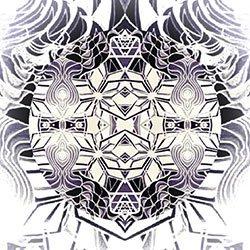 Your debut EP The Language of Things is both earthly and otherworldly. I was fascinated by your use of field recordings and Nasa deep space audio samples. Were these the starting points for your compositions?
Your debut EP The Language of Things is both earthly and otherworldly. I was fascinated by your use of field recordings and Nasa deep space audio samples. Were these the starting points for your compositions?
The process of writing that EP was interesting for me. I had just come back from a road trip and there was a lot of time spent sitting silently with the natural world. I kept hearing this rolling thunder and a flute in my head and had to document it resulting in the first piece I wrote, Ocean Sky. A lot of the sounds worked like that. I would get the sense of a space or place and then go out to get it, synthesises it or sample it. The Nasa samples came in at a point when I realised I wanted a counterpoint to these earthy sounds and make things go to a vast and ethereal place.
I gather there’s a connection though as the dialogue in Nova had its origins in a road trip you took around New South Wales where you recorded field samples for The Language of Things. Did you have the concept for both EPs in mind before you went travelling?
That's right, I consider Nova a sequel to The Language of Things. They are intrinsically linked. There was no intention of writing any of this music initially. They came about after the fact mostly when I already had a lot of the source material to draw from. I was writing a lot of music at the time after my graduation. Many of these songs lay unfinished as they were all just ideas, There was a light-bulb moment when I started writing these EPs, I had found my inspiration and means of expression.
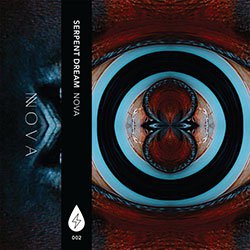 In some respects Nova is almost an exploration in consciousness as different voices ponder existential questions. Was the dialogue pre-meditated or did it just evolve from informal “campfire” conversations? To what extent did those conversations change you and impact the way the music evolved?
In some respects Nova is almost an exploration in consciousness as different voices ponder existential questions. Was the dialogue pre-meditated or did it just evolve from informal “campfire” conversations? To what extent did those conversations change you and impact the way the music evolved?
The project started with an invitation to my friends to talk about life, death and all things in between, I used the parts that spoke to me most. In having these conversations I found a lot of my own thoughts and feelings were echoed and some new perceptions to draw from formed. The voices and sounds worked symbiotically once they were placed in context
There’s a strong visual component to the release of Nova, with fine art prints and a kaleidoscopic audio visual. The idea of mantras and mandalas sprung to mind.
There were a couple of early forms of Nova one originally in collaboration with a friend containing the captured moments of our adventures This is a re-imagined version of Nova as the project and I evolved. When I finished setting up my studio in New Zealand I sat down in the dark with the music – colours, images and abstract forms sprung to mind. It was a prominent moment as I was not a hugely visual person at the time. I kept coming back to these psychedelic forms as they naturally melded with the amorphous nature of the music.
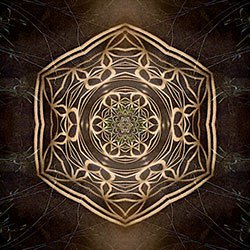 How did you hook up with your label Blood & Wires?
How did you hook up with your label Blood & Wires?
I first saw Blood and Wires pop up on social media calling out for artists for a compilation album. I always keep an eye out for local opportunities, especially when there is a sense of community involvement, I have seen this work very well for artists and labels with similar projects around the world, so I saw this and had a really good feeling that Blood and Wires will be one of those things that will get going and find a strong audience. So I submitted a song for the compilation and, as Nova was finishing up, I thought I would ask about that too and here we are!
You work out of the Nautilus Creative Space in Owhiro Bay, Wellington. Can you give a practical example of how you have drawn inspiration from the community of artists around you?
I think it is important to be around other artists, of all types, I found that seeing people being successful in their craft has inspired me to dive into my work more seriously. I also find the amount of amazing work people do inspires me to tackle new mediums. Collaborative and community projects also feed my creative energy in very holistic ways.
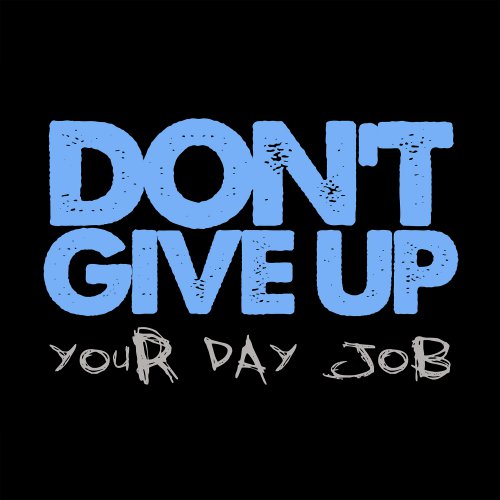
On episode #117 we talked to legendary drummer Frank Gibson Jnr. About his long and impressive career. He’s worked with a long list of artists including Shona Laing, Diana Krall, Joe Henderson, Leo Sayer, John Scofield, Dusty Springfield, The Temptations and Glen Campbell. He’s dedicated, grounded and an all-round good guy.
On episode #118 we chatted to Wellington director, playwright and performer Cassandra Tse. Founder and director of the Red Scare Theatre Company, Cassandra recently directed Single Asian Female and her previous work includes Bloodlines (2014), Long Ago, Long Ago (2015), Ordinary Days (2016), Yellow Face (2017), A New Brain (2017), The Bone Thief (2018), Gutenberg! The Musical! (2018), The Aliens (2019), and That’s All She Wrote (2020). We had a great chat about the ins and outs of putting on stage productions and building a career in the arts.
Listen to our episodes on our website, iTunes, Stitcher, Spotify, iHeart Radio, Player.FM, TuneIn
and all other good podcast apps!
DON’T GIVE UP YOUR DAY JOB - THE PODCAST
www.dontgiveupyourdayjob.co.nz


New Artist Pages
The following new artist pages have been added to Muzic.net.nz during the past month:
New Reviews and Interviews
Check out our latest reviews and interviews at the below links:
Have a look at our latest photo galleries at the below links:
Artist Galleries
Feature Galleries

Our next issue is going out on Sunday 4 July!
If you are a NZ musician and you would like to promote your music,
we would love to feature you in one of our 2021 newsletters.
You can choose the date which suits you.
We can also feature record labels, venues, music stores, music websites...
anything that has something to do with NZ music
Email [email protected] for more info.
Muzic.net.nz newsletters are currently sent out to over 8550 members!
With this number growing every day, featuring in our newsletter is an excellent promotional tool.
Access our newsletter archives here
Important Links
Facebook
Twitter
YouTube
Instagram
Aotearoa Music Industry Collective
Most Viewed Artists
Latest Galleries
NZ Top 10 Singles
- BIRDS OF A FEATHER
Billie Eilish - NOT LIKE US
Kendrick Lamar - MILLION DOLLAR BABY
Tommy Richman - A BAR SONG (TIPSY)
Shaboozey - PLEASE PLEASE PLEASE
Sabrina Carpenter - ESPRESSO
Sabrina Carpenter - LOSE CONTROL
Teddy Swims - TOO SWEET
Hozier - GOOD LUCK, BABE!
Chappell Roan - HOUDINI
Eminem

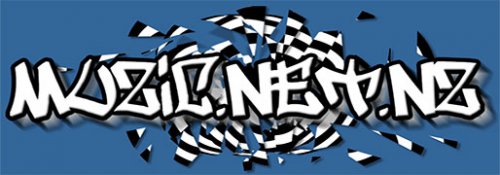
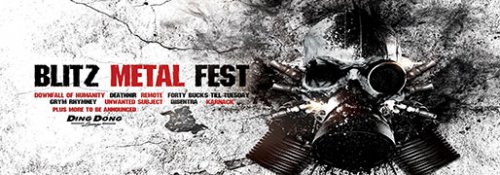

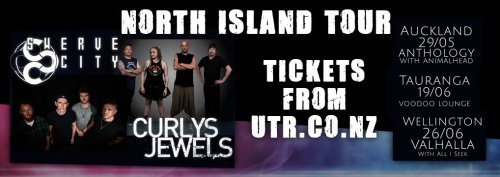

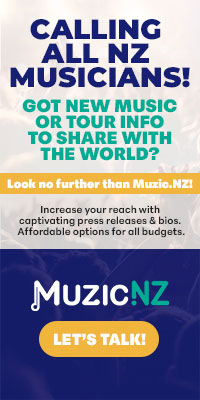






 Report A Problem
Report A Problem

